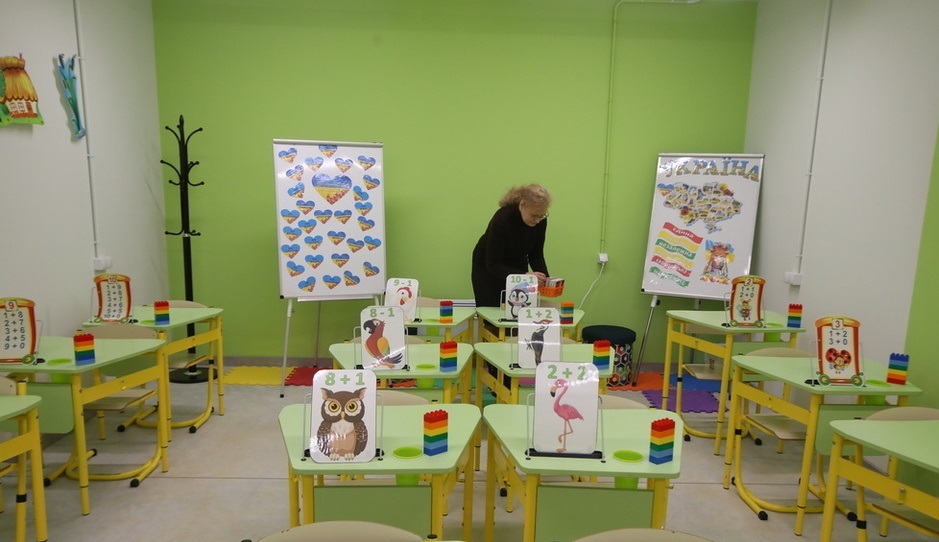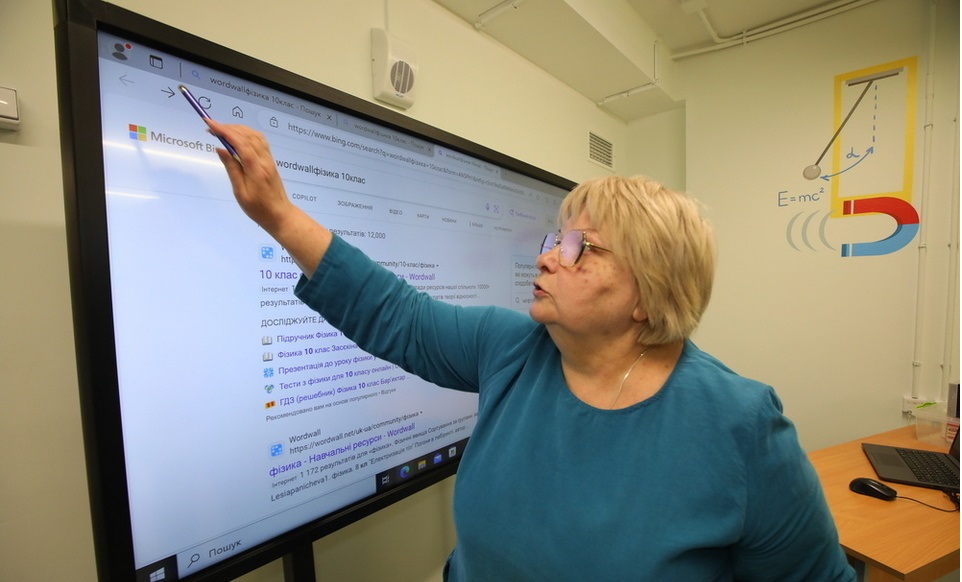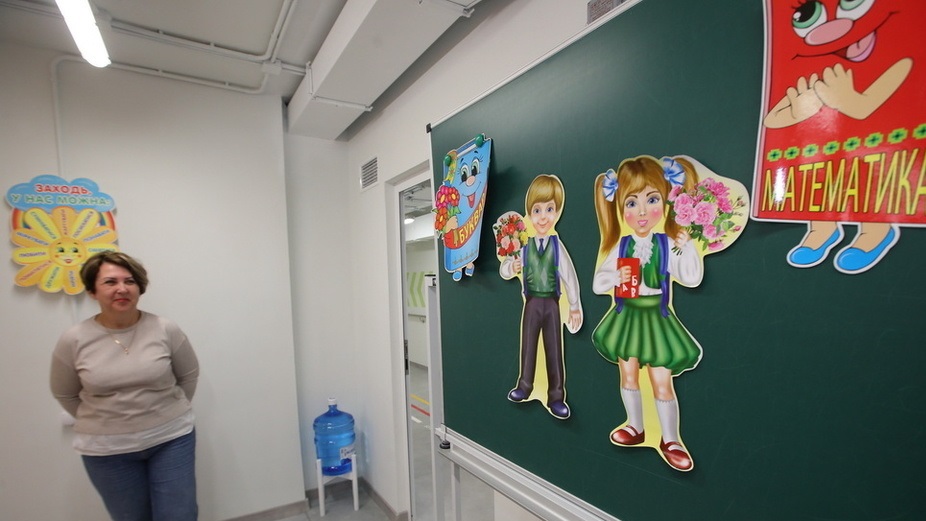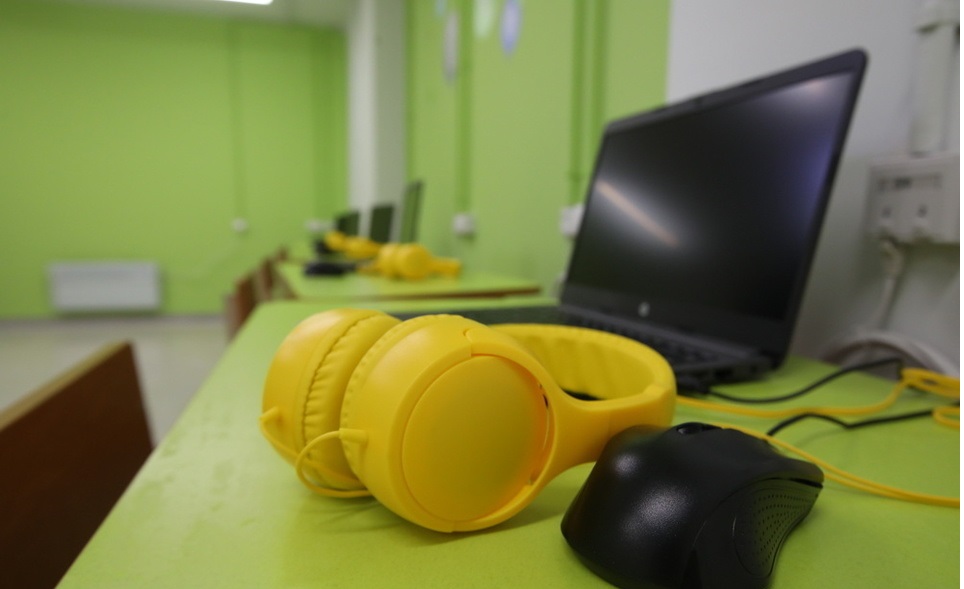Russia’s war has left two choices for Ukrainians – either to adapt to new realities or to degrade. Ukraine has chosen to continue developing and has gone underground to protect its future.
Establishing new facilities for children and parents in Lviv, Kherson, and Kharkiv marks significant steps in Ukraine’s efforts to provide crucial services amid the war, with the opening of a perinatal center and education spaces in shelters across the country.
Lviv Regional Perinatal Center renovates shelter for safe deliveries
In April 2024, the Lviv Regional Perinatal Center announced it set up delivery, operating, and hospital rooms in its shelter so that little Ukrainians could enter the world safely.
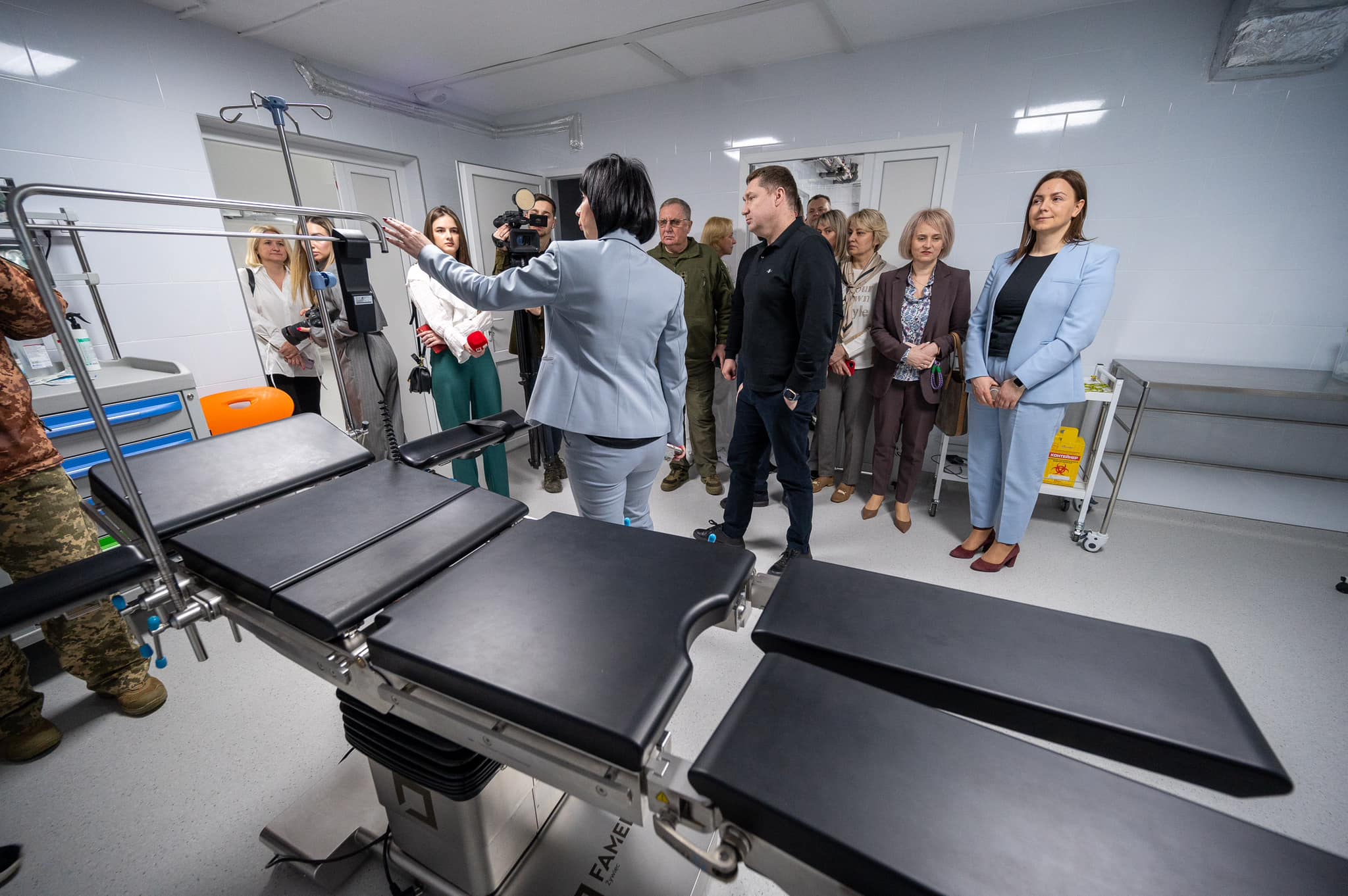
“In the underground shelter of the Lviv Regional Clinical Perinatal Center, a scaled-down perinatal has begun to operate!
Spanning over 700 square meters, it includes delivery rooms, operating rooms, intensive care units, post-intensive care units – everything necessary to bring a new life into the world and take care of it,” wrote Governor of Lviv Oblast Maksym Kozytskyi on Facebook.
He highlighted that before the outbreak of full-scale war, this basement facility served only domestic purposes. The low ceiling height of just 1,5 meters limited its usability. As a part of the renovation, the shelter was deepened by over a meter.

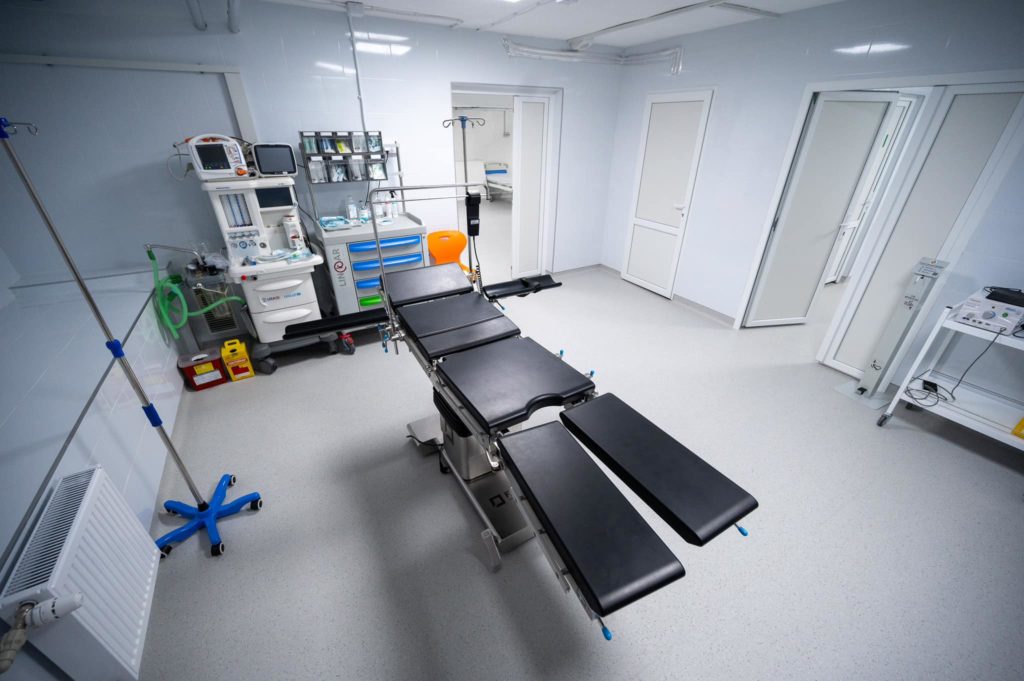


During the reconstruction, nearly 125 truckloads of soil were excavated. It upgraded the sewage, fire suppression system, and ventilation and installed internet access. All renovations comply with safety, accessibility, and state building standards, said Kozytskyi.
Funding for the innovative perinatal center within the shelter came from various sources. The Kozytsky Charity Foundation organized an auction, raising over $51,000. Additionally, donations came from Amdos Management, Vodafone Ukraine, the regional budget, and the perinatal center itself. Overall, the reconstruction of the underground shelter required over $400,000 in funds.
Below the chaos: Kherson’s children’s corners and libraries underground
Ukraine has opened several underground spaces for children in two settlements of Kherson Oblast liberated from Moscow’s forces. At those special corners in Chornobaivka and Myroliubivka, the smallest Ukrainians can play and learn while hiding from Russian missiles and drones, says Oleksandr Prokudin, the head of the Kherson Regional Military Administration. He explains that there are already 13 such playground shelters in the region.
“Persistent air raid sirens and devastating Russian attacks. Due to Russian aggression in Kherson Oblast, children are growing up in such harsh conditions.
Thus, spending hours in shelters has sadly become a regular occurrence for the region’s residents. Undoubtedly, it is especially challenging for the children during these times,” stated Prokudin.
According to him, efforts are undoing to set up children’s spaces in other shelters to provide them with a safe and enriching environment.
Prokudin mentions that Ukraine meticulously plans these shelters, ensuring every detail is handled to prevent children from getting bored underground. They are equipped with comfortable furniture, books, and various toys and offer engaging activities to children of all ages.
Moreover, volunteers in the region’s central city – Kherson- have launched the “Book Shelter” project that allows children to read literature, draw, watch, and participate in performances organized by local librarians, according to Suspilne.
Children at the Book Shelter in Kherson. Source: Suspilne
“In Kherson, it’s quite difficult to think about the future, especially for children. This creative activity helps them define their dreams and aspirations for their lives. It’s a form of visualization: when a child looks at the pages they redraw, they understand what they want to see in the future,” explains librarian Oleg, a project volunteer.
Those who participate in the Book Shelter project prefer to listen to fairy tales and discover interesting facts about nature and animals, says one of the parents whose child attends the shelter.
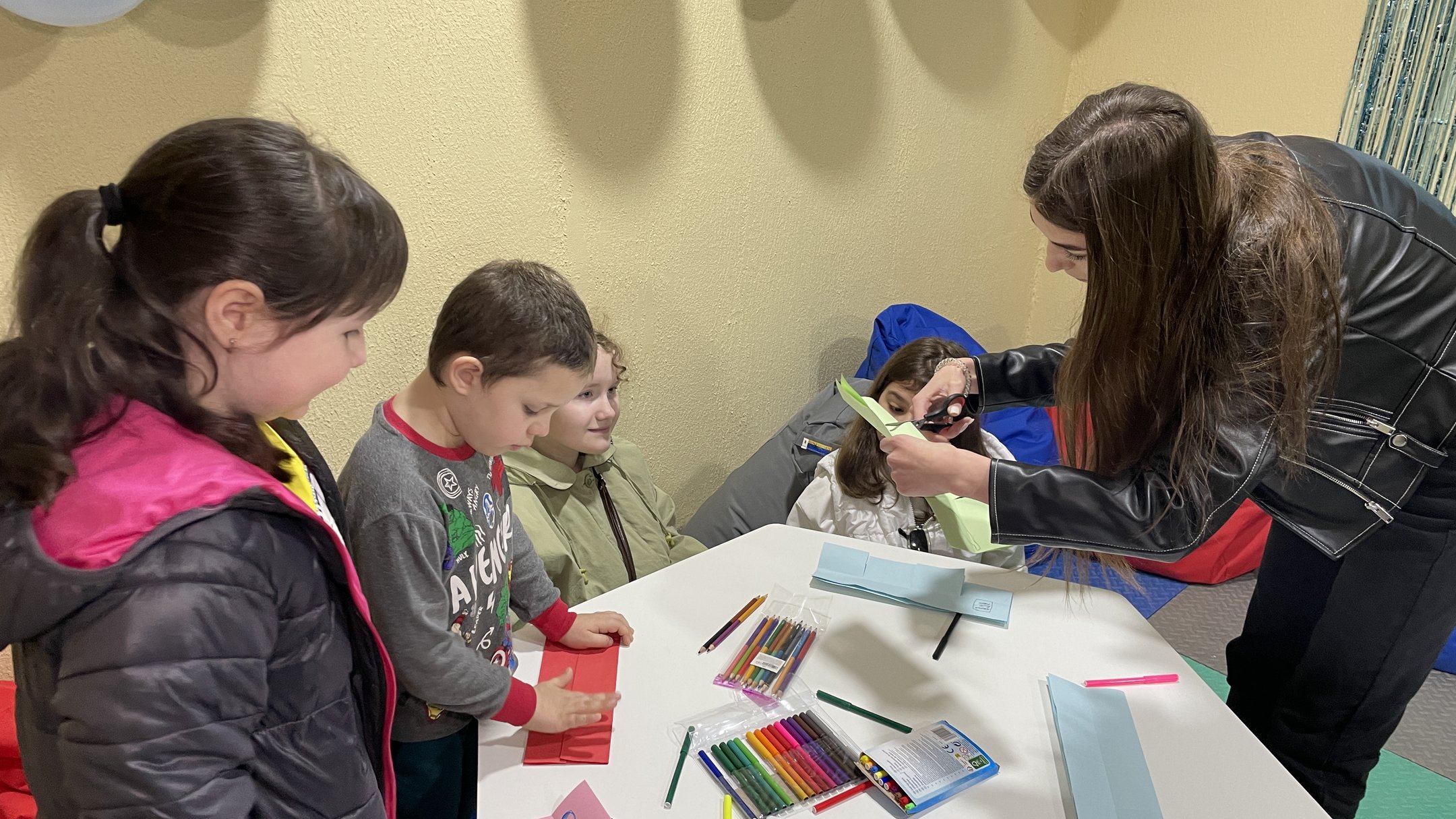
“At the moment, we’ve been solely focused on books as it was our initial project. However, in the future, we’re trying other activities together with the children because they lack real child-to-child interaction,” says Marina Chizhova, the coordinator of the Book Shelter.
Chizhova adds that the volunteers plan to open another 30 book shelters in Kherson.
Kharkiv’s school curriculum finds new depths
The overwhelming majority of schoolchildren in Kharkiv are studying remotely due to the Russian military aggression. Nearly six months ago, Ukraine’s authorities set up “subway schools” where children are taught valuable lessons at five metro stations in the city. The lessons have proved successful as the parents whose children attend those classes have yet to switch to remote education.
Recently, Kharkiv’s Mayor, Ihor Terekhov, announced the establishment of an underground school – another solution to keep students together and provide them a place to advance social interaction.
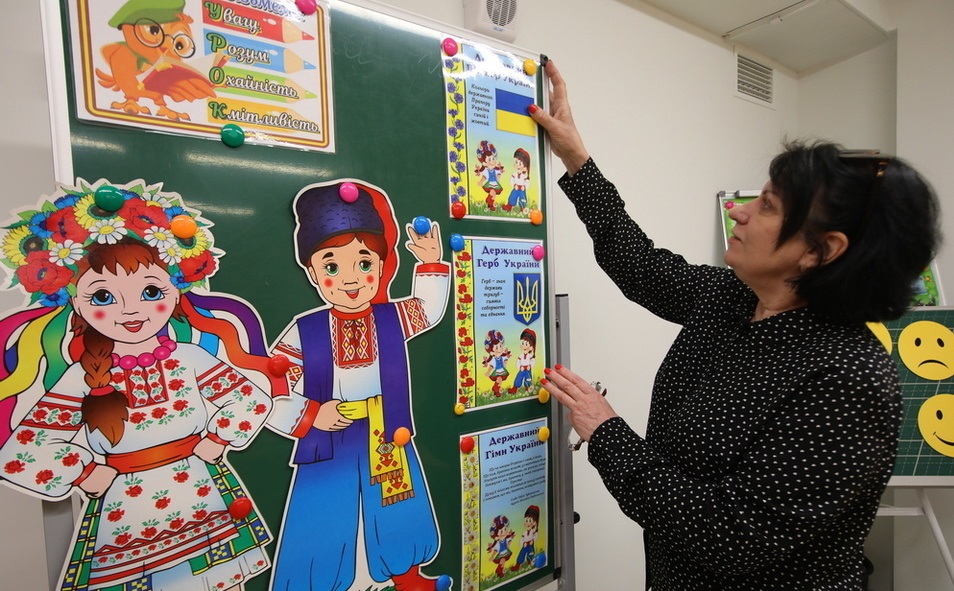
“The school is designed for 450 students per shift. It means we’ll have the capacity to teach 900 students. We’ll start with approximately 300-350 because both teachers and students need time to adjust,” said the mayor.
The school staff noted that the facility has ventilation and air recovery systems and two entrances and exits essential for the safety of children amid Russia’s missile attacks, as per UkrInform.
The underground building comprises 20 classrooms, a medical unit, a mini-cafeteria, and restroom facilities. Prepared meals for children will be ordered by the school and distributed at specific hours, with only tea available on-site.
The classes have already been formed, with at most 20 students each. Most of the students are of younger school age, said the head of the educational institution in Kharkiv’s district.
“Many families with children have returned to the city. There is already a demand for offline education,” said Olha Vynnyk, the director of Lyceum No. 157.
According to her, children will attend classes in two shifts and alternate days, which means a mix of offline and online learning to engage more students in a combined format.
The underground school in Kharkiv. Source: Ukrinform
“Following sanitary regulations, younger students will have three lessons, while senior students will have four. Offline classes will be held every other day, and some subjects will be taught only remotely,” she said.
Previously, Ihor Terekhov stated that Kharkiv plans to build more underground schools in all nine districts. The city’s authorities have scheduled the completion of another three facilities by 1 September 2024.
- Kharkiv metro was turned into an underground school so that children don’t have to go to shelter every alert
- Over 215K consumers have no electricity in Kharkiv due to Russian attacks on critical infrastructure
- Russia’s rumored assault on Kharkiv: assessing the threat
- Zelenskyy: Ukraine needs more Patriot systems to protect Kharkiv, other cities
- Dnipro authorities evacuate hospital, close schools after Russian attacks on energy infrastructure




